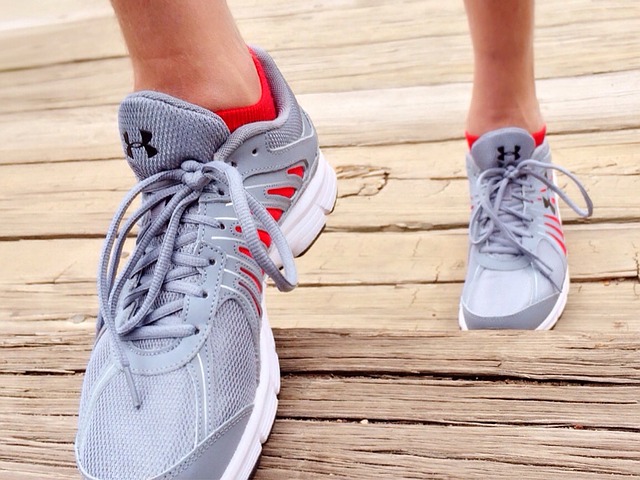Julie Entwistle, MBA, BHSc (OT), BSc (Health / Gerontology)
In my work as an occupational therapist I am often asked to help people learn to manage or improve their behavior. Things they want to stop or start doing, and how to get there, become the topic of our treatment sessions. But my response in these situations is often the same and my approach is to encourage people to make “lifestyle” and not just “behavior” changes when it comes to improving function or health. After all, if behavior (be·hav·ior) is: “the way in which one acts or conducts oneself, especially toward others” and a lifestyle (life·style) is: “the way in which a person or group lives”, then there is a difference between acting and living. My job is to coach the latter.
The difference in linguistics might seem small, but I would argue it is huge when actually implementing change. I was reminded of this the other day when taking my daughter to the doctor. Our doctor’s office is on the second floor. She entered the building and moved towards the elevator. I said “sorry Abs, we take the stairs”. She made a disapproving face and I said “we would take the elevator if we needed to, but we don’t and the stairs align with our healthy lifestyle…race ya…”
I wanted her to know that our decisions need to align with our lifestyle and that deciding to take the stairs is not just a behavioral choice (“how should I act given my choices”)? It is a way of living that will create the life we want as a family.
I still maintain that the best course I took in University was “Behavior Modification”. Our project was to modify one of our own behaviors over the four months of the course. As a dog owner, I chose the behavior of “dog walking” with the goal of making this a more regular routine. Over the next four months I mapped out routes, increased walking distances and times, monitored my progress, and made a list of great dog walking locations in my community. By the end of the four months I had adjusted my behavior from walking 20-30 minutes to two hours per day, spread over the morning and evening. This is a routine I maintained for years – adjusting it as needed to accommodate my life changes along the way. But my point is that in hindsight, the course did not allow me to modify my “behavior,” because in the end, I modified my “lifestyle” as this ultimately became the way I lived.
When taking that course I was told that it took four months to modify a behavior. I have since heard that it takes three weeks to develop a new routine. Perhaps the difference between these is that three weeks is a consistent period to make behavior change, but four months is needed for lifestyle adaptation.
Working with my clients I explain that lifestyle change is a commitment and like many things, requires daily practice. We need time to reach the goals together, and change cannot and will not happen overnight because if it did, it would not be sustainable.
Spring is here, the sun is out, days are longer…a perfect time to ask yourself what lifestyle you want to have and to develop a plan to take you in that direction. Don’t over think it. Go big. If “healthy” is on your mind, commit to a full out lifestyle change and make your daily decisions align with that. Take the stairs, adjust your schedule, cut out the sugar, run the marathon, train for the Paralympics, but ultimately commit to a lifestyle and dedicate your energy towards living that way.

